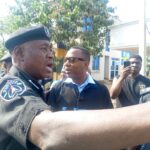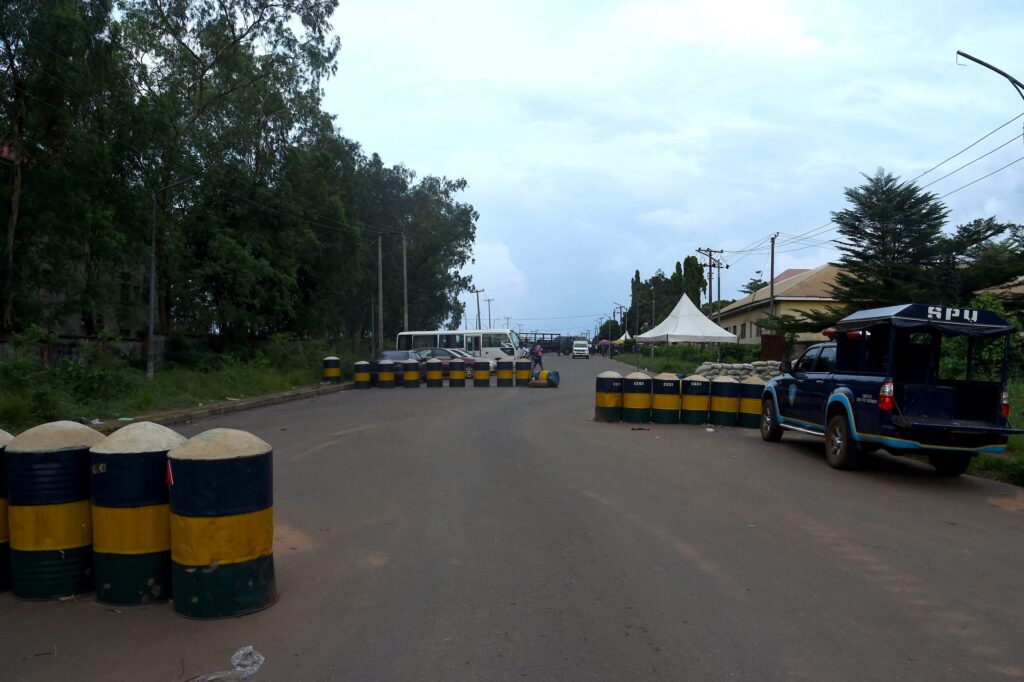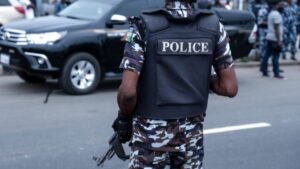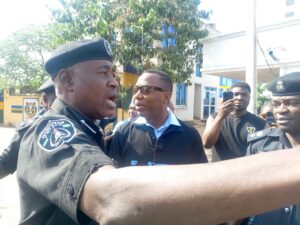By Blossom Chukwu
Indigenes and residents in the SouthEast region of the country, have been bearing the brunt of the imposed Monday sit-at-home, as directed and enforced by the proscribed Indigenous People of Biafra (IPOB). This is in addition to other days of the week that are national and state holidays. This is a terrible waste of productive time.
The sit-at-home imposition has been on for over a year. It was formally brought about on August 2021, to protest the arrest and detention of the IPOB leader, Nnamdi Kanu, by the Federal Government of Nigeria.
As it is popularly known, the Indigenous People of Biafra (IPOB), is a nationalist-separatist group that aims to restore the Republic of Biafra, a country which seceded from Nigeria prior to the Nigerian Civil War, and later rejoined Nigeria after its defeat by the federal forces. Since 2021, IPOB and other Biafran separatist groups, have been fighting a low-level guerilla conflict in the south east region, against the Nigerian government.
The IPOB leader, Nnamdi Kanu, has been standing trial before the Federal High Court, Abuja, for alleged treasonable felony. At the inception of the sit-at-home on August 20, 2021, the leadership of IPOB disclosed that the Monday weekly observation would continue until Kanu was released from detention.
Even with people’s agony and pain over the Monday sit-at-home declaration, IPOB later declared that the action would also include days Nnamdi Kanu would appear in court. It therefore goes to say that since August 2021, on Mondays, all offices, market places, shops, banks, transport companies, schools and virtually all economic activities in the region, are shut down. Even Government offices are forced not to be operational because the workers are afraid of being attacked if they go to work.
Much news on this challenge has emanated within the period, as a result of the deliberate efforts by members of IPOB to forcefully implement this demand. It was also in the news on Wednesday May 9, that no fewer than three vehicles, including a tricycle, were set ablaze by enforcers of the sit-at-home directive in Onitsha, Anambra State. One of the vehicles was set ablaze around Ugwunwanosike, while another, a tricycle was burnt beyond repairs within the commercial city.
A group, which claimed to be members of the Indigenous People of Biafra (IPOB), had reportedly issued warnings, declaring sit-at-home in many communities across the State, particularly communities in Nnewi South Local Government Area and its environs. Members of the group, were said to have stormed streets, parks and markets in the area, to deliver their message.
It was gathered that heavily-armed men stormed the Eke Ọsụ Market in Osumenyi, and some other daily markets in the area with handbills, posters and other leaflets, distributing them to the people. They warned the residents to stay tightly indoors from Monday May 8, to Thursday May 11, 2023, insisting that there would be a total LOCKDOWN in the entire Igbo land on those days.
The group however, did not indicate the reason behind the sit-at-home order, nor did it reveal the authority behind the declaration. The Police spokesperson that reacted to the development, Tochukwu Ikenga, said calm had returned to the area, following the arrival of police operatives who put out the fire on the vehicles. He said, “Police responded swiftly which made the criminals escape the scene”.
This is a clear demonstration of the feeling of unease in the Southeast region of the country, over the activities of the IPOB. Fear, worries and uncertainties have exacerbated. The tension that these activities have created have also increased attacks on road users and politicians’ convoys, making it very difficult for politicians to easily plan visits to the Southeast region, without being double sure, with extra preparations.
The attack last year on the convoy of the Senator representing Anambra South Senatorial District in the National Assembly, Dr Ifeanyi Ubah, which left many casualties, easily comes to mind. The attack, which occurred at about 5.00pm on September 12, 2022, in Enugu Ukwu, Njikoka Local Council of the State, claimed the lives of security officials attached to the Senator, as well as his aides.
When normalcy returned, the blood of those hit by the bullets were seen freely flowing on the tarred Enugu-Onitsha old road, with several shattered vehicles. Residents who were able to get to the scene of the attack early enough, expressed bewilderment at the superior firing powers of the hoodlums that shattered the quietude of the sprawling area. They had feared the bravery in confronting a convoy of such nature fitted with several security officials and yet made a breakthrough.
The quietude of the Southeastern region has come under serious challenge, as gunmen have continued to attack the area. From what started as attacks on security facilities, the incidents graduated to kidnapping for ransom and now, specific political and wealthy individuals, have become their targets. This is in addition to the Monday sit- at-home order, imposed on different States and the entire region, by leaders of the Indigenous People of Biafra (IPOB).
Part of what the current insecurity has created in the region, is the anguish and poverty it has inflicted on the people daily, as there is no free movement of residents, goods and services over fear of hoodlums who ravage the area with dangerous weapons. On several occasions, many have been ambushed, raped or killed even in their farms, while several other unfortunate travellers were abducted and set free after being made to pay huge sums as ransom.
It is now general knowledge that residents no longer travel freely unless it is of extreme importance. Posh cars are rarely seen on the highways, as they have become prime targets. From Enugu to Ebonyi; Abia to Imo and Anambra states, the situation is similar – insecurity seems to be enveloping the region.
The questions waiting to be answered in regard to this syndrome are, is there any end in sight to the current sit-at-home imposition? How soon will the APC administration under the government of Bola Ahmed Tinubu take up the challenge with deliberate steps to nip the evil menace in the bud? Why should the whole Southeast region be given orders to regularly sit-at-home by IPOB, when there is a national government that can do more to arrest the situation?
Several individuals are waiting to see how fast and urgent the Tinubu administration will take up the challenge. It was apparently in response to these negative trails that the Anambra State governor, Professor Charles Soludo, on assumption of office in March 17, 2022, offered amnesty to those perpetrating crimes in the State to lay down their weapons, promising to rehabilitate them for the benefit of the State.
Soludo who during his inaugural speech decried the huge revenue losses the region incurred with the sit-at-home, promised to take deliberate steps to restore peace to Anambra State and in the long run, to the entire Southeast region. No sooner had he summoned a meeting of concerned unions in the state than the gunshots increased, returning the area to the status of a State under siege.
The apex Igbo socio-cultural organisation, Ohanaeze Ndigbo insists that the growing insecurity in the region is worrisome, even as it blames the development on the inability of the Governors in the region, to implement the ‘Ebubeagu Security component’ agreed as a regional state-backed vigilante force to complement the current security forces.
Ohanaeze which lamented the alienation of the Southeast region from the security architecture of the country by the outgoing President Muhammadu Buhari, added that the April 13, 2021 attack on the Correctional Centre, Owerri, Imo State, where 1,844 inmates were set free, has continued to compound the security of the region.
Speaking on the economic implication of the recent onslaught in the region, a Development Expert, Dr Chiwuike Uba stated that the economy of the region was in auto decline, stressing that there was a huge decline in its Internally Generated Revenue (IGR), as well as productivity, due to insecurity.
On what should be done about the situation, analysts have said there is a need for re-orientation among the youths. They should be trained in different forms of orientation programmes to understand that they can never have true success by taking advantage of other individuals and the state apparatus in whatever way. In addition to this, the judiciary should be strengthened to be able to enforce laws. This is because we have enough laws as a country, but have always had the problem of enforcing the laws.
Another aspect that was strongly suggested is the fact that the Government has been advised to fully work on a deliberate plan towards improving intelligence gathering for the protection of lives and properties of those in the region and beyond.










More Stories
Borno woman killed over allegation of witchcraft, police arrest two suspects
VIDEO: Defiant Sowore confronts police, EFCC operatives over barricade at Federal High Court
Shehu Sani faults Senate invitation of Berekete Radio host Ahmed Isah over Akpabio, Natasha spat